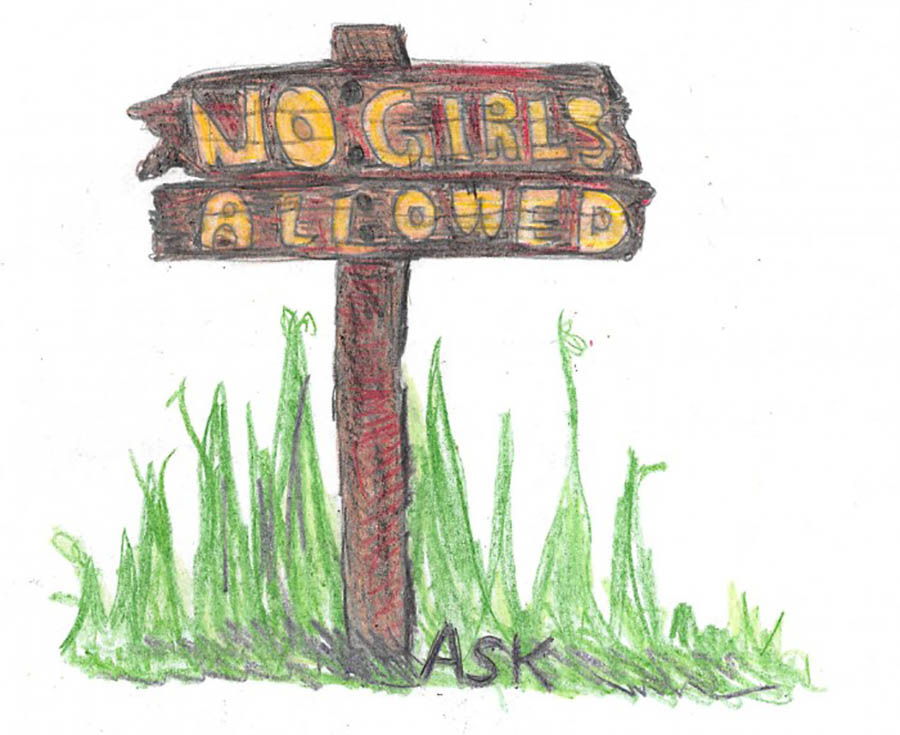
Misogynists Among Us
Many of the men who identify themselves as “men’s rights activists” are aggressively misogynistic. You may never have encountered such men or even have been aware of their existence, but they are organized and appear to be growing in number. They typically characterize men as subject to widespread discrimination and lacking the power, privileges, and advantages women have. Given the irrationality and factual inaccuracy of this sort of anti-female rhetoric, if you do become aware of men voicing views of this sort you are best advised usually to ignore them — unless, of course, they pose a threat of physical violence or civil rights infringement. But what should you do if an influential leader in your organization or career field expresses blatantly sexist views?
Scholars in the tiny academic field of Anglo-Saxon studies (think Beowulf) recently found themselves in this situation. Allen Frantzen, a professor at Loyola University Chicago for 35 years and one of the true giants in the field, was found to be posting anti-female rants on his website. Frantzen’s avowed aim with his blog is “to help [a man] express the views and take the actions of a just, honest, and masculine man in the face of the organized, systematic, and inescapable feminism of American culture.” According to Frantzen, “Men today live in femfog, a thick mist of anti-male propaganda …” Because of femfog, “Modern feminism has succeeded in creating a popular and professional culture already or in large part dominated by women.” Men’s welfare “has never been more under attack in America than it is today [because] ‘all systems are rigged to favor women over men.’”
The scholarly Anglo-Saxon community seems to be appropriately dealing with Frantzen. But what about the broader question of how you should respond if an influential leader in your field or organization is aggressively hostile toward women? The answer to that question has three parts: assessment, action, and follow-up.
Assessment involves determining whether speaking out will make a positive difference. You might, of course, want to denounce this man simply because you are morally outraged. But even so, you should be clear (at least, to yourself) about why you are speaking out and what you want to accomplish and avoid by doing so.
If you decide to criticize this man’s views publicly, keep in mind that humor — ridicule, parody, and exposure of absurdity — is likely to be more effective in this situation than passionate outrage. Regardless of your approach, however, your objective should be to call attention to the misogynist’s hateful, prejudiced views, without providing him with a highly visible stage on which he can further promote his anti-female harangues.
If this man is in your organization, consider going to HR or the head of the organization before going public with your criticism. As for dealing with a misogynistic leader in your field, you may want to consider whether your target ought to be this particular man’s views or a broader, cultural problem within your field generally. Whatever the situation, you need to focus on the wrongheadedness of the ideas themselves, not the man (or men) expressing them. And, don’t let your outrage cloud your judgment; you will be most effective if you keep to the high ground.
As for follow-up, a single, articulate, well-reasoned, clever email is not likely to accomplish much (other than making you feel better). Perhaps a public dialogue with the misogynist would be valuable — if not to change his mind, then to educate the broader community about the prevalence of such views and their nasty, hurtful nature. Frantzen complains that the people who are criticizing him have not attempted to refute his ideas — and indeed, they haven’t. This may be because his ideas are so outrageous that addressing them would dignify them far more than they deserve. But, if a prominent man in your organization or field is a strong “men’s rights advocate,” more than a single denunciation or expression of sadness may be needed to contain his contagion.
Misogyny is ugly and hateful. Sometimes it can be ignored — in an obscure author or a neighbor or even a relative. Often, however, it can’t and shouldn’t be ignored. As you consider your response, keep in mind that a strong, forceful, outspoken woman is a prime target for organizational backlash, hostile criticism, and social isolation — what we call “agentic bias.” Therefore, in speaking out against the misogyny, you need to address why the ideas are misguided and hurtful, without fueling criticism of women as aggressive, strident, and “unfeminine.”
As is so often the case when a woman asserts herself, an effective response to a misogynist will require you to be Goldilocks: to project a style and tone that is neither too hard nor too soft but just right. In combatting misogyny, as with many aspects of your career, you will need to carefully manage the impression you make.

